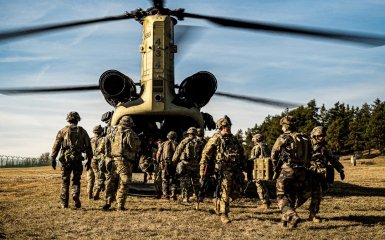The head of German diplomacy, Annalena Berbock, officially confirmed that she does not rule out the introduction of German soldiers into Ukraine to monitor the observance of the ceasefire.
Points of attention
- Germany is considering the possibility of introducing troops to monitor the ceasefire in Ukraine.
- NATO leaders are discussing the issue of sending troops to Ukraine, taking into account the possible consequences for the security of the region.
- Boris Johnson calls on Britain to make a positive decision.
Germany is ready to do more to end the war
The head of the German Foreign Ministry drew attention to the fact that the scenario of an international military presence in Ukraine to ensure a ceasefire is considered as an addition to other security guarantees, primarily NATO membership.
Journalists asked about the possible role of official Berlin in this matter.
According to Berbock, Germany will undoubtedly "do everything in its power to support everything that will serve peace in the future."
Importantly, this is the first time a member of the German government has spoken out about part of a possible peace plan since Donald Trump's inauguration.
What is known about the possible introduction of NATO troops into Ukraine
As mentioned earlier, the French edition of Le Monde recently reported that secret discussions regarding sending troops to Ukraine have resumed in Europe.
However, The Times claims that NATO members will be reluctant to send troops to Ukraine because if Western military personnel are killed by the Russian army, countries such as Great Britain could quickly be drawn into the war.
Against this background, former British leader Boris Johnson regularly calls for the introduction of British peacekeeping troops to protect the border of Ukraine in the event of a future ceasefire with Russia.
The head of Luxembourg diplomacy, Xavier Bettel, said that he opposes the idea of sending NATO troops to Ukraine, because he considers it an escalating decision.
Troops on the ground mean war, and we need to remember that, he said recently.








